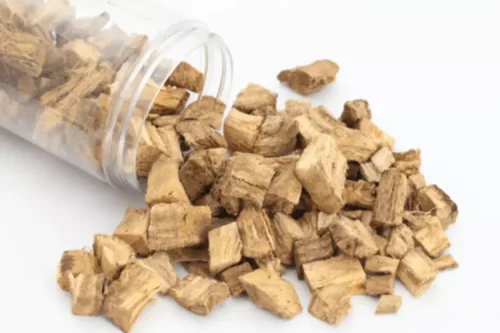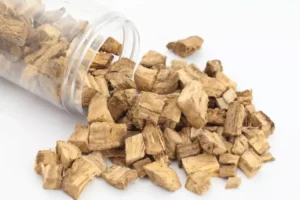
Blood alcohol concentration and urine alcohol concentration are different. Alcohol is detectable in the urine for a lot longer than in the blood. When consumed, the body processes and excretes alcohol from the system.
- Empagreat 10 Tablet can be taken with or without food at any time of day, but you should try to take it at the same time every day.
- Carbonated beverages, such as champagne or a whiskey mixed with soda, are absorbed faster.
- Other alcohol drug tests are used over different time frames.
- After heavy alcohol consumption, the urine will likely test positive for alcohol for 72 hours or more, depending on how much was consumed.
Best Inpatient Mental Health Rehab Treatment Facilities
Urine tests cannot determine when a drug was used—only that it is still present in your system. This means you could test positive even if you weren’t impaired at the time of driving. A DUI attorney can challenge the validity of these results. There are a number of other ways to detect alcohol in the body aside from urine tests. There are some types of tests that can detect certain metabolites, called phosphatidyl-ethanol (PEth), for up to 14 days after the person’s last drink. The federal government warns against using EtG urine alcohol tests for any of the following.
Why Might I Need an Alcohol Urine Test?
- For example, if conducted between six and 12 hours after a person’s last drink, the tests are deemed highly accurate, but the results could be skewed outside of that window.
- However, in some cases, particularly with heavy or chronic alcohol use, alcohol may stay in your system for up to 80 hours.
- It tells the average amount of alcohol consumption over the three month period.
- Other reasons you or a loved one may be required to submit a urine test could include court cases, traffic accidents where there is suspicion of impairment due to alcohol use, and more.
After drinking, alcohol will generally remain in urine for 10 to 12 hours on average. If you take a drug test capable of screening for alcohol metabolites, this can detect alcohol use for up to 48 hours. Afterward, it travels through the bloodstream and affects your bodily functions. The liver is where most of the alcohol metabolism takes place.
- For example, someone who must show they haven’t had anything to drink.
- The FHE Health team is committed to providing accurate information that adheres to the highest standards of writing.
- Urine tests are the least accurate chemical test and are typically used only when breath or blood testing is unavailable.
- These tests serve as a warning system because they are sensitive to small amounts of alcohol for up to three to five days after consumption.
The Definition of One Drink

A fortified glass of wine has 20% alcohol in a 5-ounce serving. Well-known examples of fortified wine are Madeira, port, vermouth, and sherry. Always consult with your doctor before mixing a prescription and alcohol.
Blood Tests (12 to 24 hours)
To find another treatment program, browse the top-rated addiction treatment facilities in each state by visiting our homepage, or by viewing the SAMHSA Treatment Services Locator. Aside from consuming a lot of water, there is very little you can do to modify the amount of alcohol in your system. Stopping drinking and allowing time to pass is the only true way to sober up. If you are scheduled to take a test, and you have 24 hours or more, a sweat-inducing workout won’t hurt, but drinking plenty of water is the only thing that might Oxford House help.
Alcohol detection times vary depending on the person and the test used. In most cases, alcohol can stay in your system for 6 to 72 hours. This is why different tests detect traces of alcohol from a few hours to several weeks. There are many ways to check the amount of alcohol in someone’s body. Blood tests can give a reading for up to 10 hours, but they cannot tell how much was consumed or when it happened.

About 20% of the alcohol you consume enters your bloodstream from your stomach. Your small intestine has a large concentration of blood vessels. The remaining 80% of alcohol enters your bloodstream from the small intestine. It usually takes about two hours for EtG to show up in urine. Certain medications can affect how your body metabolizes alcohol. Medications like antidepressants and antibiotics can slow down the breakdown of alcohol in the body.
Side Effects And Health Risks Of Alcohol Addiction

Testing in this manner is very accurate, fast, and easily accessible through lab testing and at-home kits. Urine tests can detect very low levels of alcohol up to five days after consumption, and this is especially true with how long does alcohol stay in your system EtG tests. The only type of test that can detect alcohol longer is a hair test.
- With a commitment to ethical and evidence-based practices, the blog strives to educate and inform its readers about the best medical practices available.
- It involves collecting a urine sample from us, usually in a controlled environment like a medical facility or testing center.
- As you can see, EtG tests are more accurate than other tests.
- It will take longer for wine to leave your body than beer, even if you consumed the same amount.
- These tests are prone to false positives, particularly for drugs, because substances can stay in the urine long after the effects have worn off.
How Long Can Alcohol Be Detected In Urine?

On average, alcohol can be detected in urine for about 12 to 48 hours after your last drink. However, in some cases, particularly with heavy or chronic alcohol use, alcohol may stay in your system for up to 80 hours. Urine alcohol testing has varying levels of detection rates and speeds depending on factors such as personal body type, height, weight, and gender. Other factors which can alter alcohol detection time include liver health, alcohol tolerance, and more.

